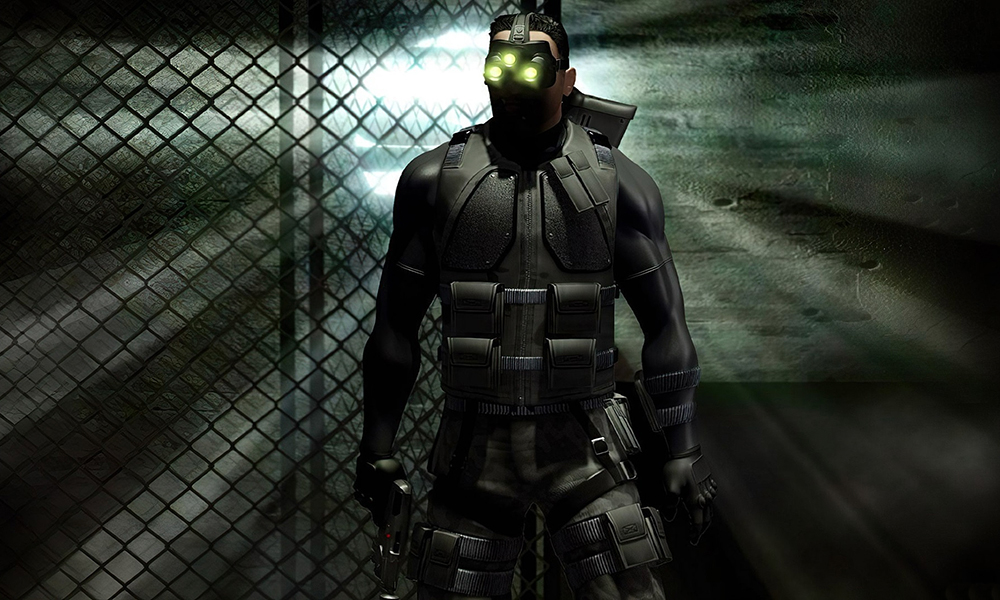My most recent gaming experiences (with the significant exception of the hundred-something hours in Red Dead Redemption 2) have mostly been of me replaying games I’ve previously enjoyed. Those dives into my Steam library, as well as some daliances back into consoles when I’m so inclined, got me thinking about the games I played years ago. They’re games that aren’t quite retro, but are old enough that they’re made for TVs no one has anymore or for systems that technically display in HD but have been so outstripped by modern tech that they look terrible. In those cases, I think a remaster is permissible. It’s not a desperate move by a creatively bankrupt studio, it’s a loving restoration of games that should never be lost.
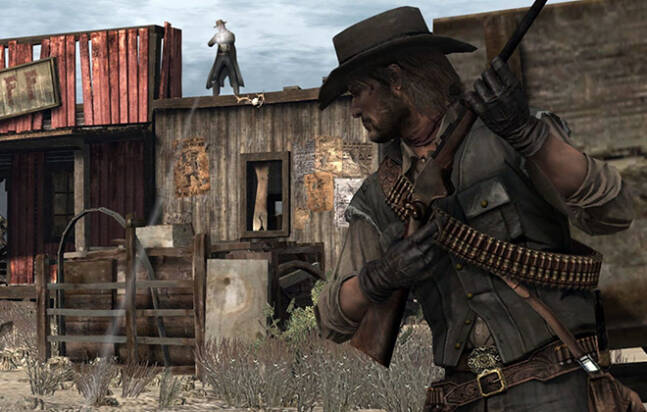
Red Dead Redemption
When Red Dead Redemption came out on PS3 and Xbox 360, it was an impressive demonstration of the new consoles’ ability to handle massive and complicated open worlds, numerous NPCs, and hours and hours of content. It looked great on LED and plasma screen HDTVs, with wide expanses of the American Southwest and Mexico stretching out in front of you.
It was also one of my first encounters with story-driven single player games. The voice acting is excellent, the world is full of complex characters and situations, and the story pulls you deeper and deeper into the lives of everyone you meet. John Marston deserves to be considered the high water mark of video game protagonists. His humanity and emotional intelligence, as well as his humor, are on full display alongside his constant vacillation between idealism and realism.
Going back to play it now (or channeling your nostalgia into YouTube recaps and highlights), it shows its age. Not in the narrative–all of that holds up. It’s on the technical side that things suffer. The character movements are choppy, the landscapes are blurry, muddy, and suffer from pop-in, and towns can feel sparsely populated.
The reason a remaster is on my mind is I just finished my first playthrough of its prequel, Red Dead Redemption 2. It’s a technically stunning game, with gorgeous visuals, even on low powered PCs, and I’d love that fresh coat of paint on the first one. But more significantly, I’d love to see if Rockstar would make any updates to the original’s story now that we know the lead in. A remaster could include new dialogue, a handful of character returns, and a few new side missions, not for nostalgia, but because they’d actually have a real place and effect on the original’s story.
Sadly, it doesn’t sound like Rockstar plan on remastering. There were plans of one years ago, but a few things seem to have changed Rockstar’s thinking. The main might be how poorly executed their Grand Theft Auto: The Trilogy – The Definitive Edition was. It was a buggy, unstable mess that might have shown Rockstar would be better off leaving their past greatness where it is and focusing on their upcoming projects.
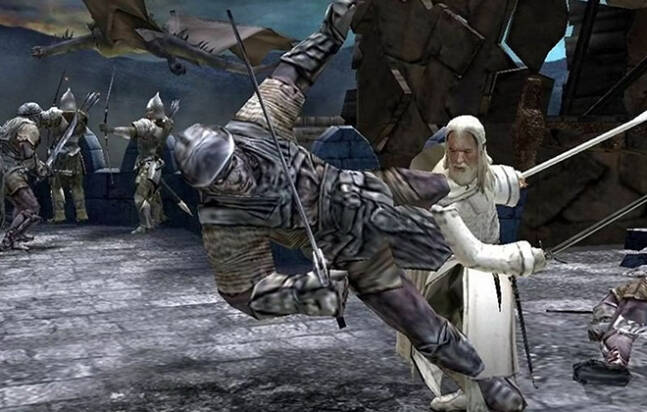
The Lord of The Rings: The Two Towers/Return of the King
I don’t know anything about the development process for The Lord of the Rings tie-in video games and I don’t want to know anything. I prefer the myth I’ve built in my head, where a small group of developers were handed what was meant to be a cynical cash grab capitalizing on the popularity of something that was already rolling in absurd amounts of money and absolutely rocked the shit out of their project.
A substantial number of the movies’ actors reprised their roles, the environments and character models were accurate to the movies, and the unforgettable scores from Howard Shore are brought back to great effect. Each level of both games leads in with voiceovers and clips from the films, which works a lot better than the mixing of live-action footage and video game cutscenes have any right to. The levels are genuinely challenging, enemy types are varied to keep combat interesting, and there’s a surprisingly deep upgrade system that actually respects a character’s strengths instead of flattening them out so they all play the same.
The success of The Two Towers also brought more resources to bear on the followup game, enabling the developers to add more of everything that worked. There were more levels, more playable characters, and more post-campaign challenges, along with the ability to replay any story level with any character, creating some accidental humor when Gandalf obliterates a bunch of orcs in Osgiliath or when Sam carves his way through Pelennor fields. Return of the King also features a co-op mode, creating bonding moments and bitter arguments between big and little siblings.
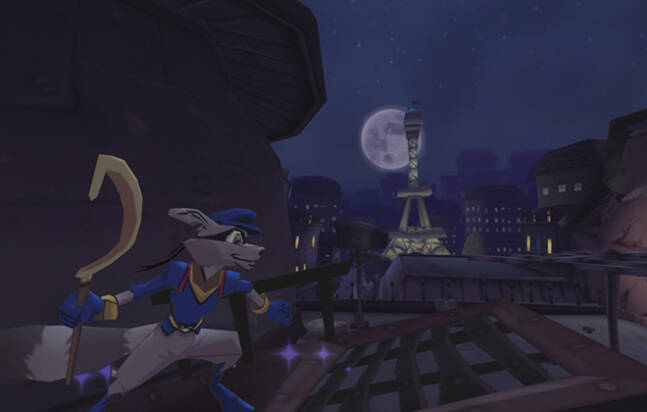
Sly Cooper and the Thievius Raccoonus
The first Sly Cooper game belongs to the haze of childhood. I have very fond memories of the game without remembering if I ever actually beat it. A quick revisiting of the walkthrough on YouTube prompts some ancient nostalgia, so I must have finished the game
It comes from the era of PS2 games that came before the dominance of first-person shooters, when there was an overlap between the mascot led platformers, like Sonic the Hedgehog, Crash Bandicoot, and Mario, and the increasing complexity and realism enabled by the increasing computing power of consoles. Games distinguished themselves with their art style, innovative mechanics, level variety, and wide audience appeal.
In Sly Cooper’s case, that meant cartoonish cel shading, an array of master thief abilities to suit different play styles, different worlds themed after each of Sly’s villains, and the accessibility of the game. This is a game meant for casual fans and children, where the challenge is enough to foster a sense of accomplishment but won’t have you memorizing long strings of complicated button combos and smashing controllers out of frustration. It’s a genre that’s primarily served by mindless mobile games and free to play but pay to win subscription games, neither of which bode particularly well for the future of gaming.
In a remaster, I wouldn’t want much changed. I don’t need additional levels, new characters, or more challenge. I really just want something that’s updated to reflect the more powerful PCs and consoles we have today. The cartoony noir style would greatly benefit from added detail and the popularity of Borderlands proves cel-shading can look great in current gen gaming.
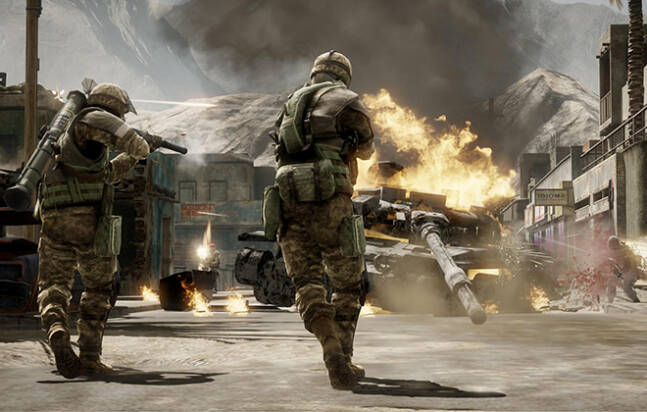
The Battlefield: Bad Company Series
I’ve had the “We don’t know why people liked Bad Company” banging around in my head since it first popped up almost 10 years ago, especially since it’s been used as the main reason we’ve gone 13 years without a sequel. But the popularity and endurance of the games (Bad Company 2 had well populated and active multiplayer servers as recently as when I was playing in the summer of 2022) doesn’t explain why DICE hasn’t at least taken a shot at a sequel.
It’s true that Bad Company and its sequel were a tonal departure from the first entries of the Battlefield franchise, with Battlefield 1942, Battlefield Vietnam, and Battlefield 2142 all being relatively realistic in their graphics and gameplay. The Bad Company offshoots, on the other hand, are simultaneously tactical and arcady, sarcastic and earnest, cartoonish and realistic. The guns and vehicles had serious power, the “War Tapes” audio setting added punch to every in-game sound, and the destruction enabled by the new Frostbite engine created some of the most memorable and white knuckle gaming moments I’ve ever had. The main squad, Bad Company itself, comes right up to the edge of caricature while still feeling like real people. They maintain their sense of humor in the face of danger, but without the sense of fatigue of all the Deadpool imitators.
Ultimately, I think a Bad Company remaster would help us all rediscover the free spirit those games seemed to embody. They felt like what gets made when an indie film director gets a little more money without more studio meddling, while the more recent titles, Battlefield 1, Battlefield V, and Battlefield 2042 feel like what happens when producers try to commodify and market what a game’s online community creates organically.
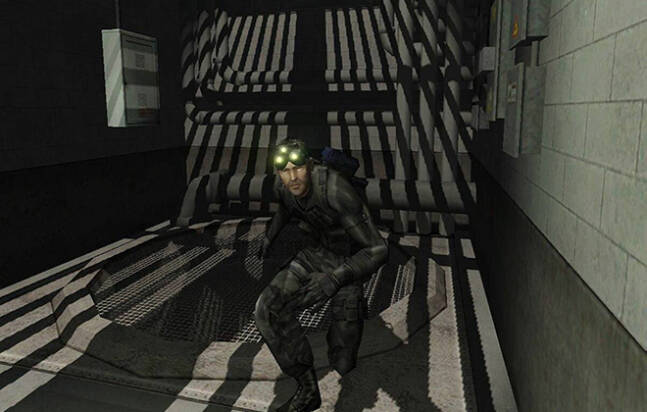
Tom Clancy’s Splinter Cell
Splinter Cell might be the only game on this list where a remake is actually confirmed to be in the works. It’s still extremely early days and apparently the development team has been put into a sort of media brownout so they can focus on the game. Supposedly, what’s in development is a ground-up remake and will hold tightly to the spirit of 2002’s original game while utilizing modern computing power.
My own personal interest in the game would be the change of pace the Splinter Cell games always offered. Maybe I’m just getting old (having finally entered my thirties), but it feels like everything’s getting faster. Games are headbreaking melanges of color, sound, and frenetic anxiety, with gamers’ main utterance being compression clipped screeches. Splinter Cell forces you to slow down and play with your actual thinking brain. It’s been awhile since we’ve had that kind of break, especially one produced at a AAA development level. The last Splinter Cell game, Blacklist, came out back in 2013.
It wasn’t a bad game, but it didn’t fully feel like a Splinter Cell title. Some of the levels took place outside during the day, the voice actor was different, and the main character was somehow slightly younger and in better shape than in Conviction. Some stealth elements were reintroduced or upgraded, like being able to perform knife kills from cover, but those gains were cancelled out by increased gunplay. The remake would be a welcome return to form for a series that should never have lost its influence in the gaming scene.

